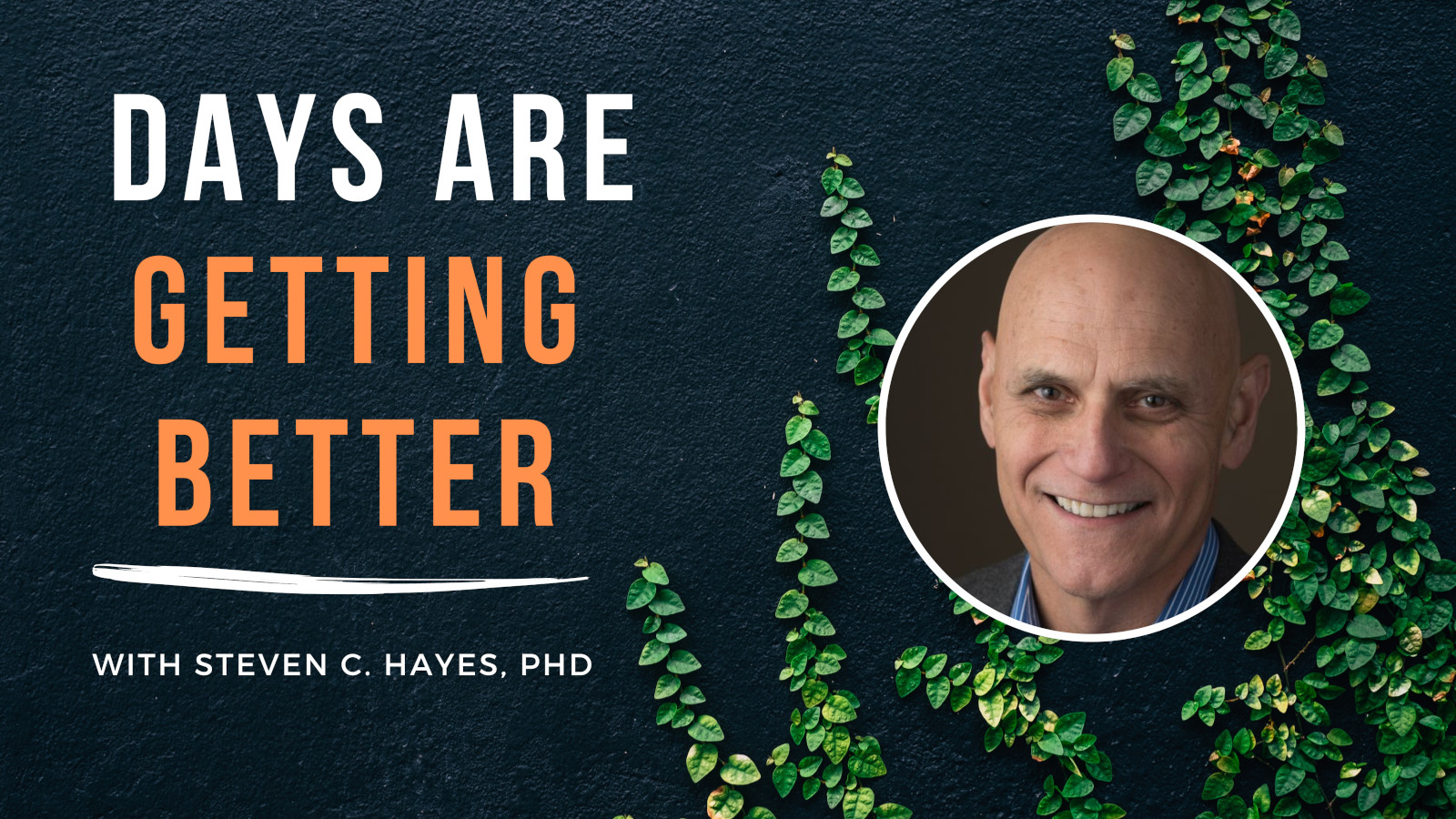Nobody needs to be taught that life is hard—we quickly learn that ourselves. But what many people have been taught—sometimes subtly, sometimes explicitly—is that life only starts after the hard parts go away. That if you’re feeling anxious, you need to fix it before you can speak up. That if you’re grieving, you have to wait until the sadness is gone before you can begin again. The implicit mental rule is this: you have to avoid feeling bad to feel good, and you need to feel good before you can do good.
But it’s a trap. And it’s one we fall into because it almost makes sense. We’re used to solving problems. We touch a hot stove, we pull our hand away. We treat illness, we expect recovery. But the world inside our skin plays by different rules: when it comes to thoughts and feelings, trying to eliminate pain often makes it worse.
The human mind is an amazing tool, allowing us to imagine, plan, evaluate, and create. But that same mind also tells us we shouldn’t be feeling what we’re feeling. It whispers: “You have to get rid of this first. You have to feel better before you can move forward.”
In science, this process is called “experiential avoidance” or “EA” and it’s one of the most toxic ways of interacting with the world. The more we begin to organize our lives around not feeling certain things, the more we numb ourselves, and the more our lives shrink.
But there’s another form of EA. It’s based on slight tweaking of that same rule: you have to hang on to feeling good or you will feel bad, and you need to feel good before you can do good.
Fact is, the more we chase “happiness” in a clinging “or else” fashion, the more it flits away! In science this process is called “experiential attachment”. It’s another form of “EA” and we are rapidly learning it is just as toxic to our well-being as the first kind.
The Unexpected Alternative to Struggling
We live in a world that worships comfort and control. From self-help books to advertising slogans, we’re told that we should be happy, that discomfort is a failure, and that if we feel bad, we must be doing something wrong. So, naturally, we start fighting our pain. We push it down, numb it, distract from it, argue with it – but that means we can’t learn from it! We can’t let it assume it’s natural role in carrying information from our past history into relevant present moments. With enough suppression we may even become emotional idiots – no longer even knowing what we feel.
But notice that clinging to feeling good is another form of much the same thing! When we desperately try to fix good feelings in place, they too lose all informational value. Addiction to substances is a clear example of that story and there we even call these doses of substances a “fix”. That is not an accident.
But here’s what decades of research, thousands of therapy hours, and the lived experience of countless people show us: the more you try to control your inner world by avoidance AND by needless clinging the more control it has over you. Avoiding anxiety often makes it stronger. Clinging to joy makes it slip away. The energy spent in both forms of EA could instead be used to live—and yet we get stuck in an endless loop, trying to get the “right” feelings in place before we can start taking action.
Acceptance and Commitment Therapy, or ACT, offers a different path. Not one that promises you’ll feel good all the time, but one that teaches you how to live well even when you don’t “feel good” as you instead learn how to do a good job of feeling. ACT invites us to stop struggling with what’s inside and start connecting with how what’s inside helps us manage what’s outside and vice versa. That is what matters. Emotional terms tell that story – they ALL started on the outside as a way of teaching us about our insides so as to manage our outsides. Even the very word “happiness!” It came from a Norse word that meant a good “hap” – a chance “happening” or “happenstance” that “happened” to occur and make you “happy”! Does that sound like clinging to you? No, it doesn’t! The very origin of the word invites you to learn to let go and get with what’s happening.
To let emotions to their work we need a greater ability to feel fully, to show up in the present, and do what matters with your whole heart, no matter what thoughts or emotions show up. Said in another way, emotions need to be allowed come and go so that they can orient us to our own history and current circumstances. They are more like lights on our dashboard in our car, than they are blue ribbons to be pounded into the nearest wall
“Acceptance” in ACT doesn’t mean tolerance or resignation. It comes from the Latin word that means “to receive – as if to receive a gift”. And what is that gift? Greater wisdom about your own life.
A Simple Act of Willingness
Let’s try something. Place your hands flat on your lap or a table in front of you, palms down. Now, bring to mind an emotion, a memory, a thought that you’ve been resisting or clinging to. With that in your mind, press your hands down as if you were trying to hold that feeling back or hold it in place. Notice what happens. Feel the tension in your arms, your shoulders, your breath. Notice how your focus narrows, how effortful it is to keep pressing.
Now slowly turn your hands over, palms up. Let them rest, open and at ease. Let that feeling be there too—not as something to be fixed (either “fixed” meaning repaired or “fixed” meaning held in place), but as something that simply is.
This is willingness. It’s the quiet decision to say “yes I will” when asked by life “will you have me as I am not as your judge me to be?”
When you stop trying to control how you feel with either form of EA and instead focus on your what is present and how to move toward what you care about, everything changes. You begin to live less from fear and more from purpose. You stop chasing happiness, and you start creating meaning.
Building A Life Worth Living
There is a sense of freedom that comes when you realize you don’t need to feel better to live better. That anxiety doesn’t have to vanish before you speak in public. And in the same way that happiness does not need to be “fixed in place.” Like a butterfly with a pin, stuck through it to keep it on the bulletin board doing, so kills the emotion itself
Life asks for your participation, not your perfection. And your values—the things you truly care about—don’t demand that you wait until you feel ready. They just ask that you begin and show up. So, maybe today is the day to stop avoiding or clinging and to start living.
Gently, with your palms open, ask yourself: “With this emotion as it is, what kind of life do I want to build?”







